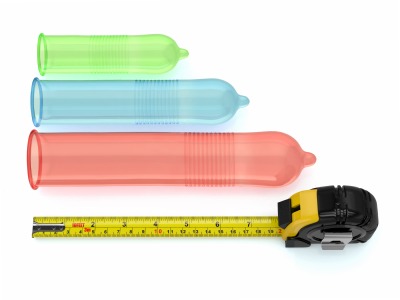What Can A Man’s Finger Length Tell You About His Penis? More Than You Might Think
September 24, 2012 by Justin Lehmiller
Over the past decade, scientists have conducted a boatload of studies correlating finger length ratios with psychological variables. Specifically, they have focused on the ratio of the index finger (the second digit when counting from the thumb) to the ring finger (the fourth digit). Among the factors associated with this ratio are sexual orientation and romantic jealousy. A new study finds that our fingers may reveal other interesting secrets, including the size of a man’s penis.
In a recent study published in the Asian Journal of Andrology, researchers measured the length of men’s fingers and penises while they were under anesthesia for an operation [1]. And yes, the researchers did obtain the men’s consent first, so you don’t need to worry that you might be an unknowing participant in a penis size study the next time you find yourself in an operating room. Different people recorded the penile and finger measurements to ensure that knowledge of one size did not influence measurement of the other. On a side note, I should mention that two different penis measurements were taken for each patient: flaccid and stretched. The reason for this is because flaccid length is not necessarily a good indicator of erect length. The stretched measurement was thus meant to approximate size during sexual arousal.
Results indicated that men with lower finger length ratios had longer stretched penises. What this means is that the shorter a man’s index finger is relative to his ring finger, the larger his erect penis is likely to be. This same finger length ratio did not predict flaccid penis size—the only factor that predicted that was height. Thus, taller men tended to have longer flaccid penises. However, height was not related to stretched penis size in this study.
How do we explain the finger length finding? The researchers believe it is a result of prenatal testosterone exposure. Generally speaking, testosterone exposure in-utero is linked to having an index finger that is shorter than the ring finger—in fact, men typically show at least some finger length difference of this nature, whereas women usually do not (except for lesbians). We know that testosterone exposure is linked to penile size as well. Thus, it may be that early exposure to high levels of testosterone exaggerates both finger length ratios and penis size.
On a side note, this finding fits well with previous research on sexual orientation and the theory that homosexuality is a product of higher than usual levels of testosterone exposure in the womb. Studies have found that gay men tend to have even lower finger length ratios than heterosexual men [2] and typically report larger penises on average (specifically, about one-third of an inch larger) [3]. With all of this converging evidence, it suggests that there might really be something to this idea. As always, however, keep in mind that almost no findings are universal and there are always exceptions to the rule. In other words, don’t judge a man solely by the size of his hands.
Want to learn more about The Psychology of Human Sexuality? Click here for a complete list of articles or like the Facebook page to get articles delivered to your newsfeed.
[1] Choi, I. H., Kim, K. H., Jung, H., Yoon, S. J., Kim, S. W., & Kim, T. B. (2011). Second to fourth digit ratio: A predictor of adult penile length. Asian Journal of Andrology, 13, 710-714.
[2] Blanchard, R. (1997). Birth order and sibling sex ratio in homosexual versus heterosexual males and females. Annual Review of Sex Research, 8, 27-67.
[3] Bogaert, A. F., & Hershberger, S. (1999). The relation between sexual orientation and penis size. Archives of Sexual Behavior, 28, 213-221.
Image Source: iStockphoto.com
Related Article:

Dr. Justin Lehmiller
Founder & Owner of Sex and PsychologyDr. Justin Lehmiller is a social psychologist and Research Fellow at The Kinsey Institute. He runs the Sex and Psychology blog and podcast and is author of the popular book Tell Me What You Want. Dr. Lehmiller is an award-winning educator, and a prolific researcher who has published more than 50 academic works.
Read full bio >


